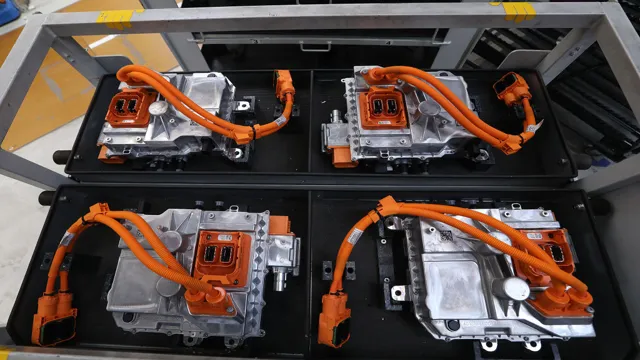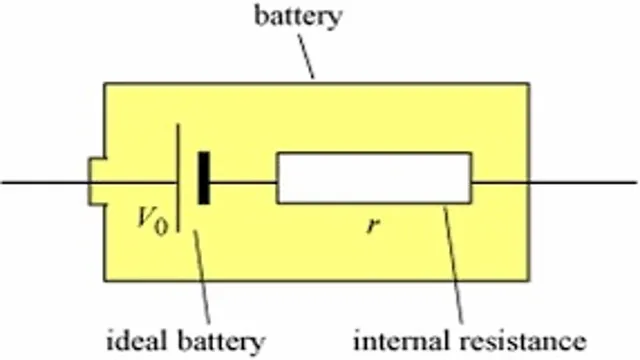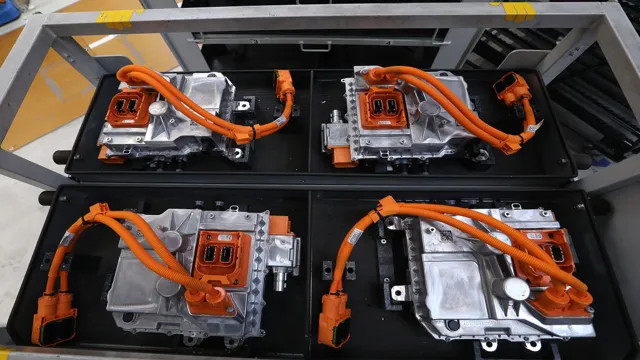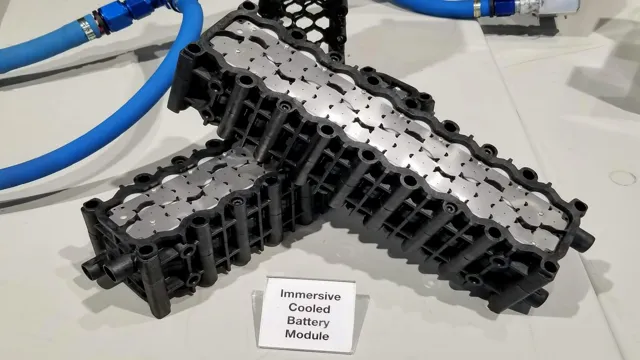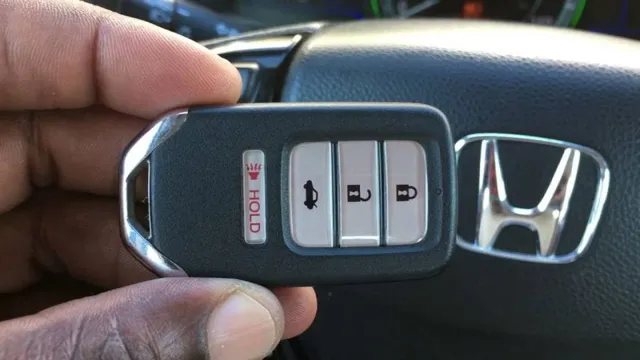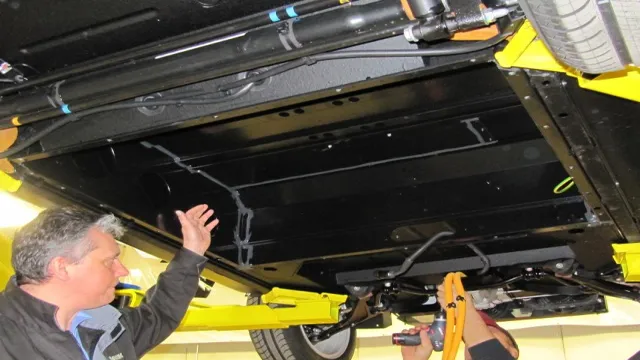Revolutionizing the Future: The Replaceable Battery System for Electric Cars
Electric cars have revolutionized the automotive industry, offering an eco-friendly alternative to traditional gas-powered vehicles. However, one of the major concerns regarding electric vehicles is their replaceable battery. While rechargeable batteries can usually last for several years, replacing them has been a hassle for most people.
But what if there is an electric car replaceable battery that takes seconds to swap? This technology might be closer than you think. Thanks to advancements in battery technology, manufacturers are experimenting with replaceable batteries that allow electric vehicle owners to swap out their depleted battery for a fully charged one with ease. Imagine plugging in your car at a station and having a quick battery replacement just like how you replace your depleted propane tank for your grill at a grocery store.
The idea behind replaceable electric car batteries is to make it more convenient for drivers to keep their vehicle on the road, without worrying about running out of juice in places where charging stations aren’t available. It would also reduce the time it takes to charge a depleted battery. While the concept is still in its experimental stage, it could be a game-changer in the electric vehicle industry, drastically reducing the anxiety levels of drivers.
In this blog, we’ll explore the current state of replaceable electric car batteries, its benefits, potential drawbacks, and how it could change the future of transportation. We’ll also look at how major electric vehicle manufacturers, such as Tesla, Nissan, and BMW, are approaching this technology and the obstacles they face. So buckle up and get ready to explore the exciting world of electric car replaceable batteries.
Overview of Electric Cars with Replaceable Batteries
Electric cars with replaceable batteries are becoming increasingly popular due to their unique advantages for drivers. These vehicles come with a removable battery that can be swapped out in just a few minutes at a service station or swap station, providing a lot of convenience for drivers who have to travel long distances. With an electric car replaceable battery, drivers can enjoy longer trips without worrying about running out of juice, as they can simply swap the dead battery for a fully charged one and keep going.
Additionally, these batteries are much cheaper and easier to replace than the entire car, making it a more cost-effective solution for car owners in the long run. Electric cars with replaceable batteries also have a minimal impact on the environment, as they produce zero emissions and reduce reliance on fossil fuels.
Advantages of Electric Cars with Replaceable Batteries
An electric car with a replaceable battery is a vehicle that uses rechargeable batteries that can be easily removed and replaced with new ones. One of the main advantages of this type of electric car is that it eliminates the need for long charging times, which is one of the biggest drawbacks of owning an EV. If the battery is running low, all you have to do is swap it out for a fresh one and continue your journey.
This makes it ideal for long-distance trips and alleviates range anxiety. Furthermore, it also offers a more flexible solution for drivers who don’t have access to charging facilities, as they can simply exchange their depleted battery for a fully charged one at a battery-swapping station. This not only saves time, but it also makes electric cars more practical and accessible for all drivers.
Overall, electric cars with replaceable batteries provide an innovative solution for making EVs a more viable alternative to traditional petrol-powered vehicles.
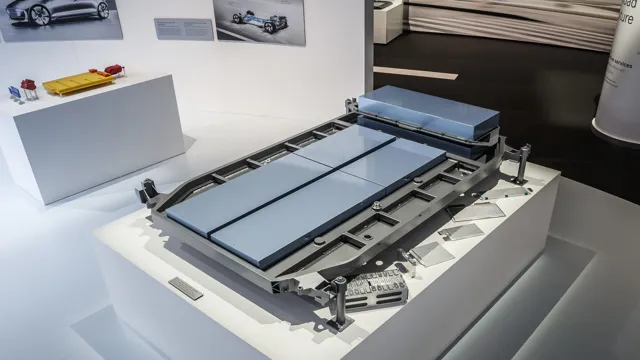
Disadvantages of Electric Cars with Replaceable Batteries
Electric cars with replaceable batteries are becoming increasingly common, but they do come with a few disadvantages. One of the biggest downsides is the high cost of these batteries, which can be as much as $5,000 or more. This means that replacing a battery can be a costly affair, especially if it happens frequently.
Another issue is that the replacement process can be time-consuming, and it may require specialized equipment and trained technicians to perform properly. Furthermore, some critics argue that the environmental benefits of electric cars are seen primarily in reduced carbon emissions, but that battery production and disposal can also have negative environmental impacts. Despite these challenges, many people are still choosing electric cars with replaceable batteries as a way to reduce their carbon footprint and enjoy the many benefits of electric vehicles.
Types of Electric Car Batteries
Electric cars are becoming more popular and one of the concerns of potential buyers is the battery-life of these cars. There are different types of electric car batteries available in the market, but the most commonly used are the replaceable batteries and non-replaceable batteries. Replaceable batteries, also known as swappable batteries, are rechargeable batteries that can be removed from the car and replaced with fully charged batteries whenever needed.
These types of batteries are mostly used by electric cars in fleets, taxis, or ride-sharing services. This is because it allows them to keep the car running for longer periods without having to wait for it to recharge. On the other hand, non-replaceable batteries are built into the car and cannot be removed.
While they have a higher energy density, they tend to have a shorter lifespan than replaceable batteries. However, manufacturers are constantly improving battery technology to increase their efficiency and lifespan. If you are considering buying an electric car, it is important to research the type of battery it uses and its features to make an informed decision.
Lithium-ion Batteries
Lithium-ion batteries are the most common type of electric car batteries in use today. These batteries use lithium ions to transfer energy between electrodes and electrolytes, creating a flow of electrons and producing electrical power. One of the major benefits of lithium-ion batteries is their high energy density, which means that they can store a lot of energy in a small space.
This makes them perfect for electric cars, as it allows them to travel long distances on a single charge. There are many different types of lithium-ion batteries, each with its own unique properties and advantages. Some of the most popular types include lithium iron phosphate (LFP), lithium nickel manganese cobalt oxide (NMC), and lithium manganese oxide (LMO).
Each type has its own strengths and weaknesses, but they all share the common goal of providing efficient and reliable power for electric cars. If you’re interested in buying an electric car, it’s important to understand the different types of batteries available and choose the one that best meets your needs.
Nickel-cadmium Batteries
Nickel-cadmium batteries may have been one of the earlier types of batteries used for electric cars, but they are not widely used anymore due to some drawbacks. Although they offer a good balance between power, rechargeability, and cost, they are also less energy-efficient and have a lower energy density compared to some of the newer battery technologies. In addition, they use toxic heavy metals and require careful disposal to avoid environmental harm.
Nonetheless, nickel-cadmium batteries remain a viable option for some applications, such as in electric power tools and cordless phones, where their ability to handle high discharge rates and quick charging makes them more suitable. Thus, while nickel-cadmium batteries may not be the best choice for electric cars, they still have their niche uses and continue to play a part in the battery market.
Lead-acid Batteries
Lead-acid batteries have been around for over 150 years and are still in use today. These batteries are commonly found in traditional gas-powered cars, but can also be used in electric cars. They are one of the oldest and most reliable types of batteries on the market.
Lead-acid batteries work by using lead plates and sulfuric acid to create a chemical reaction that produces energy. They are relatively cheap to produce and as a result, they are often found in low-cost electric vehicles. However, lead-acid batteries have a limited lifespan and can be hazardous to the environment if not disposed of properly.
Nevertheless, they are still a popular choice for many electric car manufacturers due to their low cost and dependability.
Cost of Replacing Electric Car Batteries
When it comes to electric cars, one of the main concerns people have is the cost of replacing the battery. While it’s true that electric car batteries can be quite expensive to replace, there are a few things to keep in mind. First of all, the cost of replacing an electric car battery can vary widely depending on the make and model of the car, the size of the battery, and whether or not the battery is still under warranty.
Generally, you can expect to pay anywhere from $5,000 to $20,000 for a new battery, although prices are expected to continue to come down as battery technology improves. It’s also worth noting that many electric car manufacturers offer leasing options that include battery replacements, which can be a good option if you don’t want to worry about the cost of replacing the battery yourself. So while replacing an electric car battery can be a significant expense, it’s important to consider the many factors that can affect the cost, as well as the various options that may be available to you.
Factors that Affect the Cost
When it comes to replacing electric car batteries, there are several factors that can affect the cost. One of the biggest factors is the size of the battery itself, with larger batteries costing more to replace than smaller ones. The brand of the battery is also important, as certain brands may be more expensive due to their reputation for quality.
Another factor is the age of the car, as newer models may have more complex battery systems that require a higher level of expertise to replace, resulting in a higher cost. Finally, the location of the repair shop can also play a role, with prices varying depending on the local market conditions. Overall, the cost of replacing an electric car battery can range anywhere from a few hundred to several thousand dollars, depending on these various factors.
However, investing in a new battery can ultimately save money in the long run by increasing the efficiency and longevity of your electric car.
Comparison with Fixed Batteries
As electric cars become more popular, many people are concerned about the cost of replacing the batteries. Compared to traditional cars with fixed batteries, the cost of replacing electric car batteries can be quite high. However, it’s important to keep in mind that electric car batteries can last much longer than fixed batteries – up to 10 years or more.
Additionally, the cost of replacing electric car batteries is likely to decrease as technology improves and economies of scale are achieved. While it’s true that replacing electric car batteries can be expensive, it’s also important to consider the long-term savings on fuel costs and the environmental benefits of driving an electric car. Overall, the cost of replacing electric car batteries is a valid concern, but it’s important to weigh the costs and benefits and consider the long-term implications.
Future of Electric Cars with Replaceable Batteries
Electric car replaceable battery models are gaining popularity as concerns over range anxiety and long charging times plague electric car buyers. The concept of a replaceable battery also has implications for the future of electric cars. This technology could expedite the adoption of electric cars by reducing charging times and increasing convenience.
With a replaceable battery, drivers can simply swap out a depleted battery for a charged one, much like filling up with gas. This means that businesses could set up charging stations with multiple swappable batteries in a matter of minutes, improving accessibility for electric car users. Additionally, replaceable batteries would allow for more energy-dense batteries that could extend the range of electric cars in the near future.
The future of electric cars with replaceable batteries holds great promise for the electric car market and could result in faster adoption and reduced range anxiety among electric car drivers.
Conclusion
In conclusion, the replaceable battery feature in electric cars is a game-changer. It not only eliminates the range anxiety that many drivers face but also allows for a more sustainable and efficient future. With the ability to switch out batteries as needed, electric cars become a smarter, more practical choice for drivers who want to reduce their carbon footprint.
So, forget about oil changes and tune-ups – with a replaceable battery, you’ll have the power to go farther and greener than ever before!”
FAQs
What is a replaceable battery in an electric car?
A replaceable battery in an electric car is a battery that can be easily removed and swapped with a fully charged battery to extend the driving range of the car.
How does a replaceable battery benefit an electric car owner?
A replaceable battery allows an electric car owner to extend the range of their car without having to wait for it to recharge, making long distance travel more convenient.
Are all electric cars equipped with replaceable batteries?
No, not all electric cars are equipped with replaceable batteries. Some manufacturers have opted for a fixed battery design, where the battery is integrated into the structure of the car and cannot be easily removed.
Is it expensive to replace the battery in an electric car?
The cost of replacing a battery in an electric car varies depending on the make and model of the car, as well as the type of battery. Generally, a replacement battery can cost several thousand dollars, but some manufacturers offer warranty coverage or lease options that can help offset the cost.

